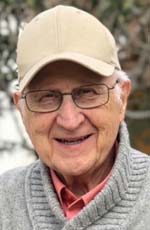By Cantor Sheldon Foster Merel

ENCINITAS, California — Now that Chanukah is over, some people may still be wondering what it was all about. Here are four facts about Chanukah, of which you may have been unaware.
1-The first Chanukah was a delayed Sukkot.
What about that?
During the battle for religious freedom in the second century before the Common Era (BCE), the soldiers of King Antiochus desecrated the temple in Jerusalem.. Consequently, the seven day Festival of Sukkot (in September) could not be observed.
By the time the war ended, it was already into December (the Hebrew month of Kislev), and too late for Sukkot. What to do in such a dilemma? You either skip Sukkot until the following year, or you celebrate it late. The Maccabees decided to hold the seven days of Sukkot in December as a “missed “ Sukkot.
After the temple was cleaned and dedicated in 164 BCE, Sukkot services were held and included prayers of thanks for the Maccabean victory. In the following year, Sukkot was observed at its usual time, and Chanukah continued to be celebrated as a new holiday in its own right starting on the 25th of Kislev, according to the Hebrew lunar calendar.
2-The real Chanukah miracle
The real and only miracle of Chanukah was the victory of the small force of Maccabees over the mighty forces of King Antiochus, something like David beating Goliath. That may have been the first struggle for religious freedom in history.
3-Seven days versus eight days for biblical festivals.
The Bible prescribes seven days observance for the three festivals (Passover, Shavuot, and Sukkot) and one day for Rosh Hashanah, as still practiced in Israel. In ancient days, the start of festivals was determined in Jerusalem and with communications limited, Jews living outside Palestine in the Diaspora added an extra day to make certain they got it right. Orthodox and Conservative Jews in the Diaspora continue to observe eight days for the three festivals and Chanukah, and two days for Rosh Hashanah. Reform Jews follow the Israeli custom of a single day of Rosh Hashanah.
4-The oil “miracle” is a myth
There is no mention of the “oil miracle” in the two books of the Maccabees that documented the Chanukah event of 164 B.C.E. or in any earlier accounts. The miraculous oil story seems to be a rabbinic invention transmitted hundreds of years after it allegedly occurred. Around that same time, there was mention in the Talmud of the ritual of lighting candles for eight nights to recall the small cruse of oil “ miraculously” lasting eight nights..
Chanukah was considered a minor holiday for centuries. When I attended Hebrew school preparing for my Bar Mitzvah, I was given a small tin chanukiah, lit candles every night, sang the blessings, and that was it! There were no gifts exchanged. It was as simple as that. With rising competition with commercialized Christmas, Chanukah became a far more popular holiday, and often with exchange of gifts.
Next year when you celebrate Chanukah, emphasize the heroism of the Maccabees who preserved religious freedom in those times that we enjoy in our time, lazman ha–Zeh”
*
Merel is cantor emeritus of Congregation Beth Israel in San Diego. He may be contacted via sheldon.merel@sdjewishworld.com
Thank you for this. I will share it with my teen aged grandson. At Chanukah we read My Glorious Brothers by Howard Fast.
DEAR FAVORITE AND DELIGHTFUL CANTOR SHELDON!!!
THANK YOU FOR ALWAYS ENLIGHTENING YOUR FLOCK OF FAITHFUL FOLLOWERS!
YOU ARE MUCH LOVED, WHETHER YOU SING, SPEAK OR WRITE….. ALL THREE DONE WITH CHARM, WIT
AND WISDOM!
TODARABA! MANY THANK YOUS!
EILEEN AND LERINA (OBOIST) AND I WILL BE REHEARSING AT MY HOME (CLOSE TO YOU!) IN EARLY JANUARY…. AND HOPEFULLY YOU WILL BE HERE TO ENJOY OUR MUSIC! I SHALL DEFINITELY LET YOU KNOW THE DATES AND TIMES!!!